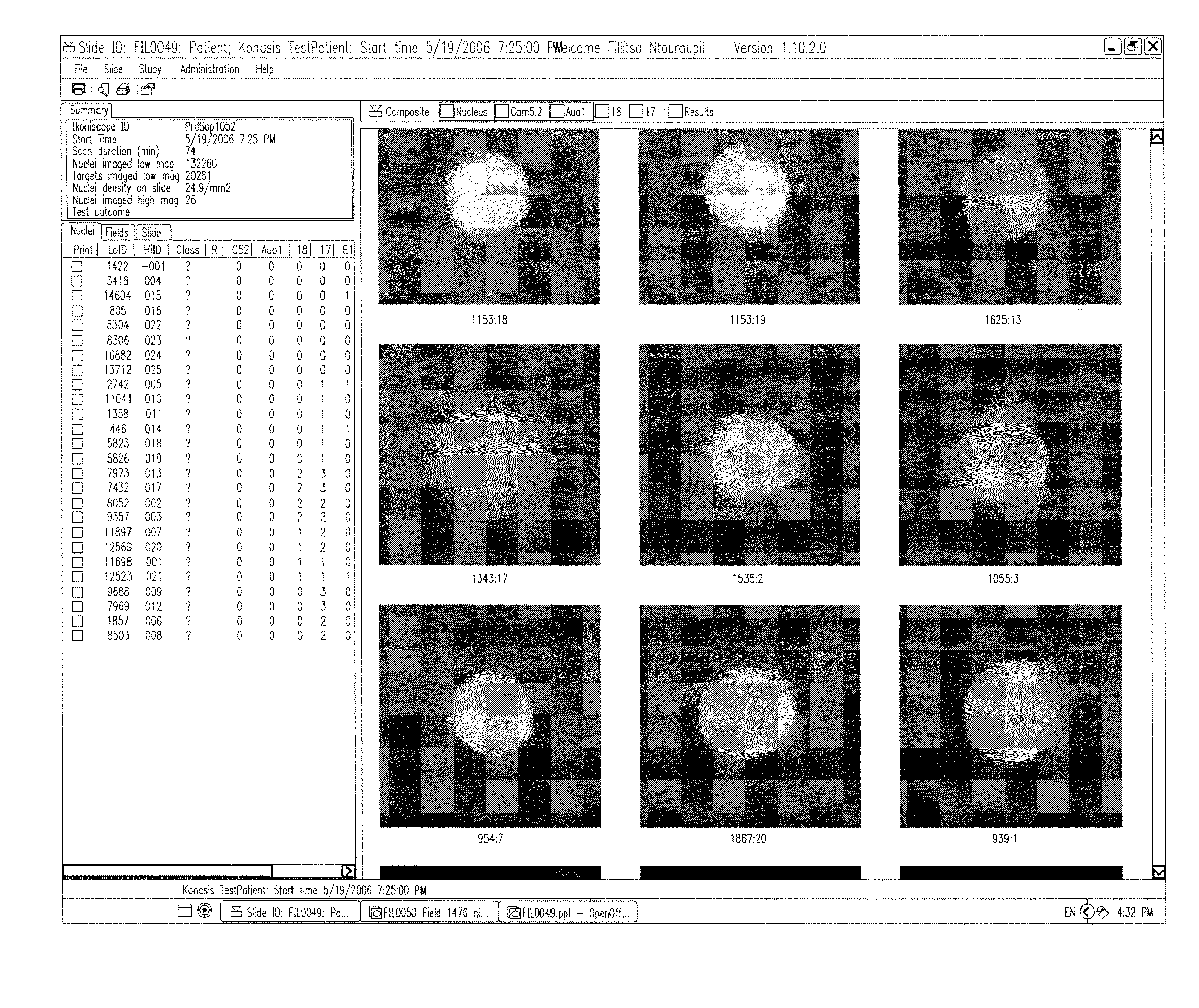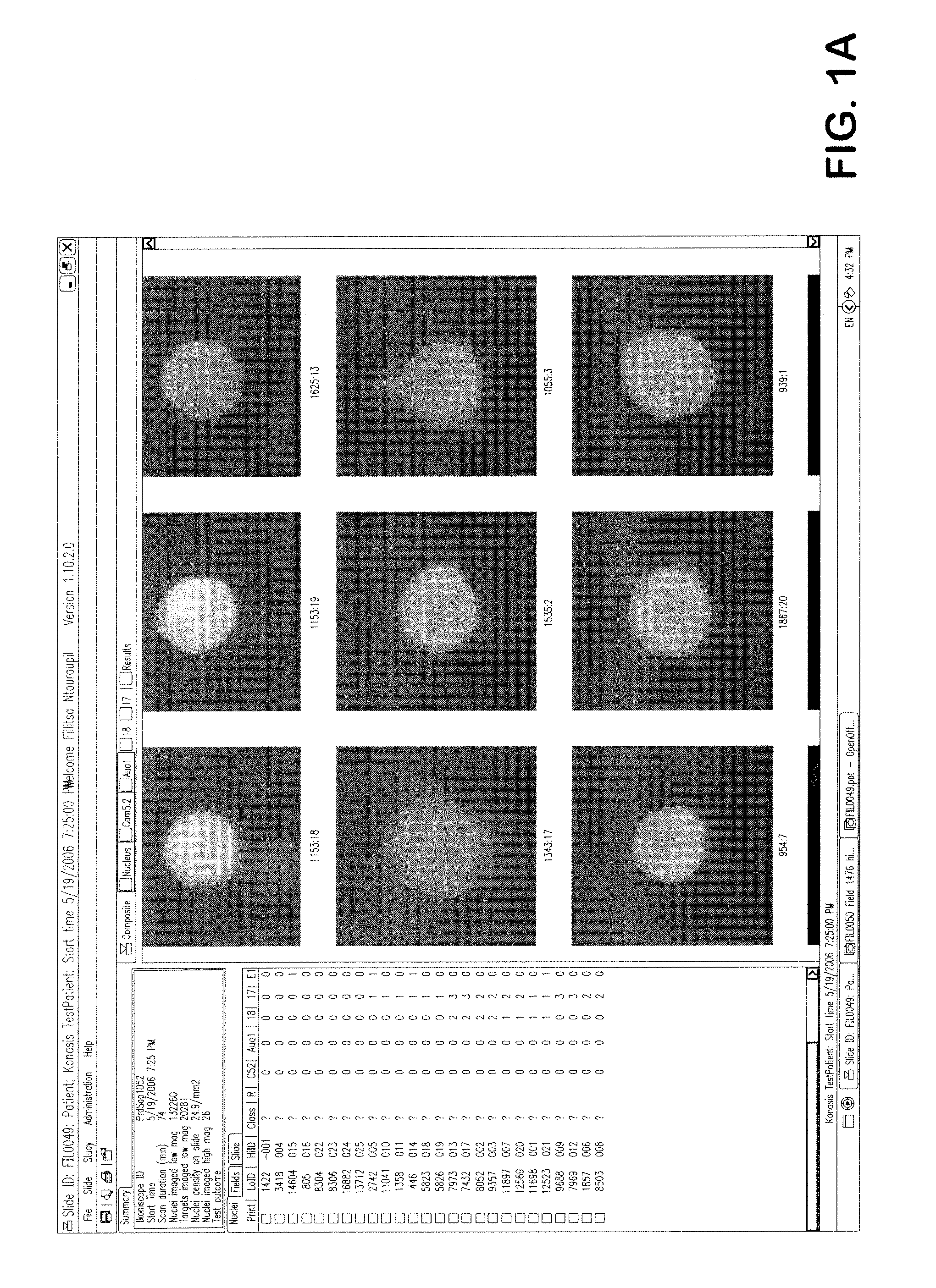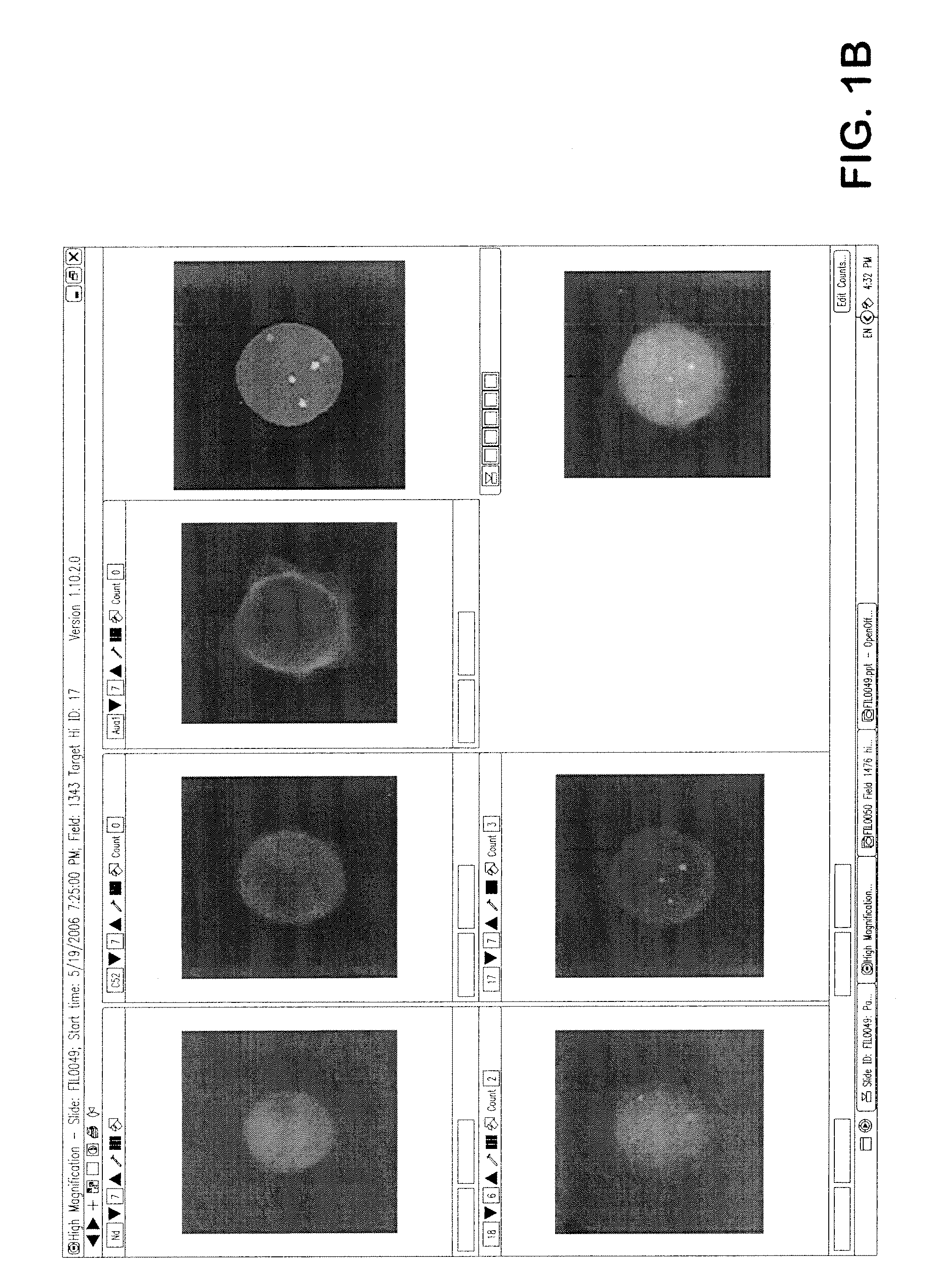Detection of circulating tumor cells in peripheral blood with an automated scanning fluorescence microscope
- Summary
- Abstract
- Description
- Claims
- Application Information
AI Technical Summary
Problems solved by technology
Method used
Image
Examples
Embodiment Construction
[0033]In one embodiment, an automated method of detecting circulating tumor cells in fluids obtained from patients, the tumor cells characterized by chemical and physical features of the cells, and generating information used to diagnose and / or monitor therapeutic progress comprising the steps of[0034]a) obtaining fluid from an individual;[0035]b) partially purifying tumor cells in fluid;[0036]c) contacting partially purified tumor cells with one or more distinguishable labeled probes directed to one or more characteristic features predetermined to identify tumor cells among normal cells feature under conditions to sufficiently affix labeled probe to withstand processing;[0037]d) analyzing said labeled cells with a high throughput robotic digital microscopy platform using[0038](i) a low magnification to locate said labeled cell followed by,[0039](ii) a high magnification for verification of cells bearing at least one said labeled probe; and from additional probes directed to charact...
PUM
 Login to View More
Login to View More Abstract
Description
Claims
Application Information
 Login to View More
Login to View More - R&D
- Intellectual Property
- Life Sciences
- Materials
- Tech Scout
- Unparalleled Data Quality
- Higher Quality Content
- 60% Fewer Hallucinations
Browse by: Latest US Patents, China's latest patents, Technical Efficacy Thesaurus, Application Domain, Technology Topic, Popular Technical Reports.
© 2025 PatSnap. All rights reserved.Legal|Privacy policy|Modern Slavery Act Transparency Statement|Sitemap|About US| Contact US: help@patsnap.com



